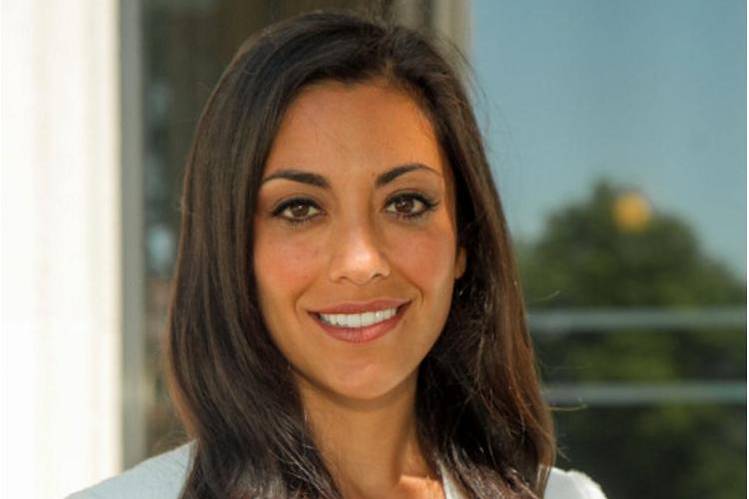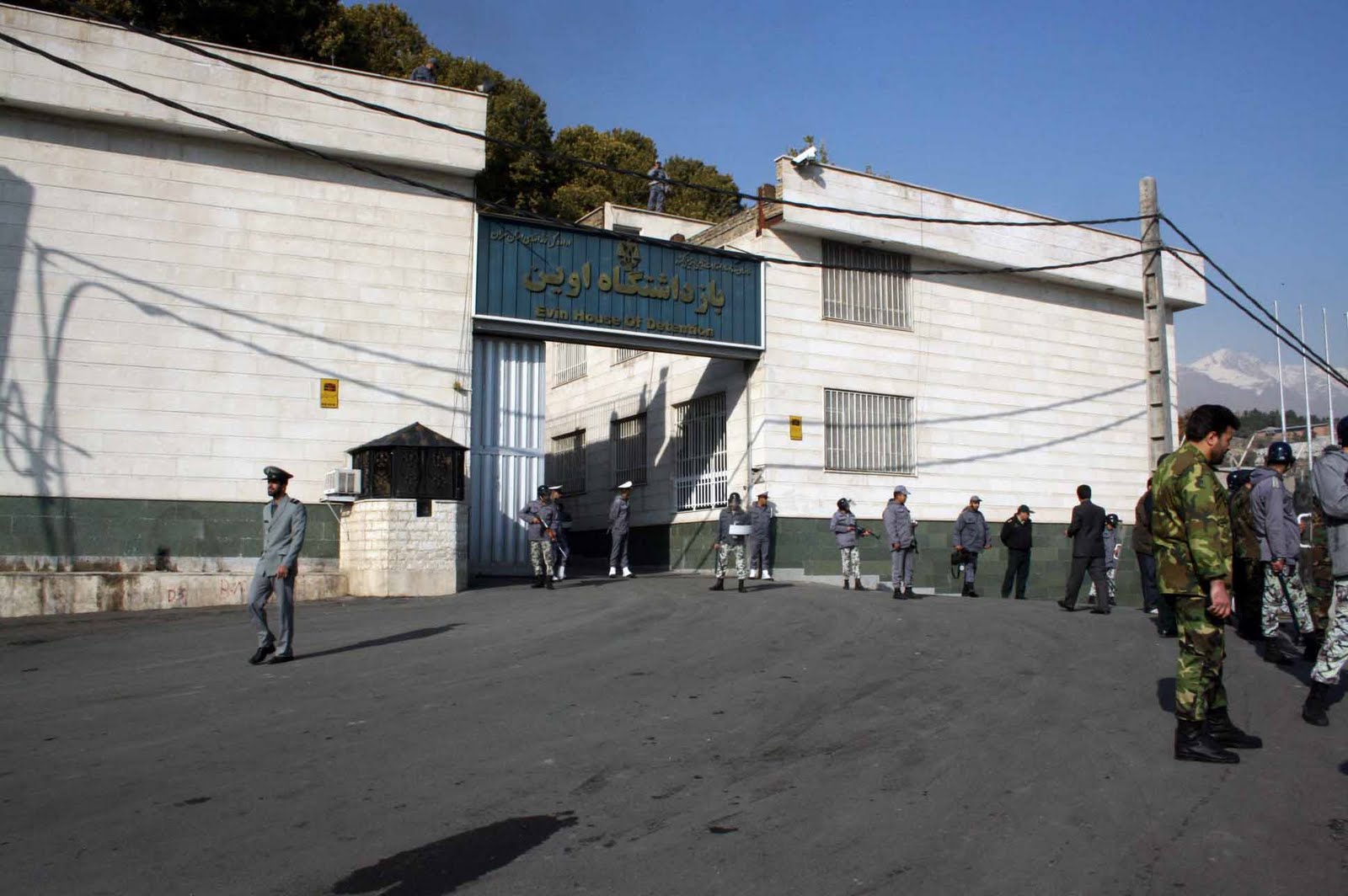I think that we just felt very much like we have an obligation because we were brought out of Iran under horrible conditions. You read in the Book of Mormon about Lehi and the brother of Jared and where it says that people will be brought out of many lands and all of them will be brought out by the hand of the Lord to this country, and I felt like we were very much saved in that way. – Shima Baradaran Baughman
 Shima Baradaran Baughman is an Iranian immigrant, a member of The Church of Jesus Christ of Latter-day Saints, and a law professor at the University of Utah College of Law.
Shima Baradaran Baughman is an Iranian immigrant, a member of The Church of Jesus Christ of Latter-day Saints, and a law professor at the University of Utah College of Law.
Although she was just 6 years old when her family immigrated to the United States, she still has vivid memories of her time in Iran, including childhood memories of visiting her own mother in an Iranian prison. It is those memories that have shaped every aspect of her life.
Early in her legal career, Shima represented a Hasidic rabbi, Rabbi Mordechai Samet, who said that his ability to pray was being prohibited while serving his prison sentence. The Bureau of Prisons insisted that he pray inside his cell — a cell which contained a toilet — thus making it an unclean place for him, as well as other Jews, Muslims, and Buddhists, to pray. She was able to get the Bureau of Prisons to accommodate her client, but the same accommodations were not afforded to Muslim inmates in the same federal prison. Since that case, she has worked tirelessly to cut pretrial detention rates and to improve the lives of those who are incarcerated.
At the age of two, while at a dinner party with family, Shima’s mother was taken captive by men carrying machine guns. Her crime was her political involvement. Raised in a devout Muslim home, Shima’s mother was one of many people who were upset by the Shah Mohammed Reza Pahlavi who wanted Iran to become a secular country and was preventing Iranian people from exercising their religious freedoms. Shima said that her mother was happy to embrace democracy, but in her mind, as well as in the minds of many others, “a liberalized Iran looked like one where you could choose your religion and vote for your leaders.”
 Her mother was taken to a renowned prison called Evin, which was originally designed to house 320 inmates, but in the early 1980s, 15,000 inmates were placed in the prison under deplorable conditions. For six months her mother slept in a cell with 100 people. There was not enough room for everyone to lay on their sides, so each night, three people stood through the night in each cell. She was able to have one cold shower every 40 days and was allowed to use the bathroom just once a day. Every night approximately 70 people in the prison were killed. Shima recalls her mother telling her that this was done “just to keep the fear alive.” After the first six months, her mother was transferred to a smaller political prison in northern Iran.
Her mother was taken to a renowned prison called Evin, which was originally designed to house 320 inmates, but in the early 1980s, 15,000 inmates were placed in the prison under deplorable conditions. For six months her mother slept in a cell with 100 people. There was not enough room for everyone to lay on their sides, so each night, three people stood through the night in each cell. She was able to have one cold shower every 40 days and was allowed to use the bathroom just once a day. Every night approximately 70 people in the prison were killed. Shima recalls her mother telling her that this was done “just to keep the fear alive.” After the first six months, her mother was transferred to a smaller political prison in northern Iran.
You think it sounds awful to spend two weeks in prison, but it was actually an incredible opportunity to be with my mother and my sister as well. – Shima Baradaran Baughman
 Shima was three years old when she and her older sister, Mehrsa, went to visit their mother who was serving a 10-year sentence for treason. Shima remembers that the three of them were “so incredibly happy to be reunited” despite the circumstances.
Shima was three years old when she and her older sister, Mehrsa, went to visit their mother who was serving a 10-year sentence for treason. Shima remembers that the three of them were “so incredibly happy to be reunited” despite the circumstances.
Shima’s father was not involved in political advocacy. He was a surgeon working for the government. It was his career that proved to be his family’s way out of Iran.
During the second year of her mother’s sentence, her father treated a high-ranking religious leader who had a panic attack. As a result, her father was able to acquire help in getting his wife, as well as his sister, out of prison.
In 1980, conditions worsened for Shima and her family as war began between Iran and Iraq. Shima recalls going down to their basement at least once a week and hiding their face under towels because of the potential threat of chemical weapons. The family would have left the country earlier, but Shima’s mother’s desire to make a difference in their beloved country prevented them from leaving. However, when an opportunity to do a post-residency at the University of California in Los Angeles, miraculously presented itself, her parents took it. Shima’s mother was still on probation for the next eight years, which caused some concern about being able to leave the country. Nevertheless, the family made it out of the country with $10,000 and all they could carry. Shima describes the events of that time as “magical.” She said:
I was shielded a lot from the worries or stress or getting into the U.S. . . .I had no fear at that time of leaving everybody I knew and my home and all my toys. . .. I remember leaving my favorite doll on my bed and thinking that I would be back in a year. I just intuitively knew America would be better, even though I’d never even seen a picture of America.
Once in America, Shima soon discovered that life presented different challenges. At the time, she was in the second grade and only knew two words — yes and no — and she often got them confused. She recalls strategizing with her sister, Mehrsa, about how to articulate different phrases. Although her parents were able to pay the rent and buy a car, they did not have money to buy furniture, so they picked up mattresses left on the side of the road. Her family did not have a lot of the niceties that Americans tend to take for granted, but they were happy to be in America.
Not long after coming to America, the family was introduced to The Church of Jesus Christ of Latter-day Saints. The things that initially drew their attention were the idea of eternal families, moral agency, unpaid clergy, the Word of Wisdom, and the law of chastity. Shima said:
What they [her parents] knew of America is what they had seen portrayed in the media — this lifestyle of people drinking and having illicit sex. They rejected that and were so worried that they were going to bring three daughters to America, and that we would be corrupted by that. So, after an introduction to the Church, they realized that this could allay their concerns about raising their daughters in America. They though that this would be a way to keep their daughters safe and help them to maintain the morals that they wanted them to abide by.
Still, it was the genuine love of the members of the Church that drew the family into the Church. Shima recalls a visiting teacher who noticed that the family did not have any furniture and took them to Deseret Industries to get bunk beds.
 Despite the initial challenges in trying to learn the English language, Shima and her sister Mehrsa picked up the language within three months after arriving in America. In the fall of 2010, 25 years after their arrival in the United States, the two Iranian sisters became the first sibling professors in the history of the J. Reuben Clark Law School at Brigham Young University (BYU) in Provo, Utah. The siblings have focused their legal careers on legal reform and policy reform.
Despite the initial challenges in trying to learn the English language, Shima and her sister Mehrsa picked up the language within three months after arriving in America. In the fall of 2010, 25 years after their arrival in the United States, the two Iranian sisters became the first sibling professors in the history of the J. Reuben Clark Law School at Brigham Young University (BYU) in Provo, Utah. The siblings have focused their legal careers on legal reform and policy reform.
Now, a professor at the University of Utah College of Law, Shima believes there is often so much more to the story of incarceration.
So, I do have this question as a Christian [that] if Christ [was] here today, where [would] he [be] dedicating His time?” And I think some of his efforts at least might be dedicated to those who are incarcerated because they are in some ways the least of our brethren and sisters. – Shima Baradaran Baughman
Shima further commented, “We believe that Christ will advocate for all of us, every single one, regardless of what we’ve done. When you think about Christ’s advocacy for us, it is clear we all need advocates. We’re all flawed, but if we understand the kind of eternal plan that we live under, there’s a need for mercy along with justice.”





